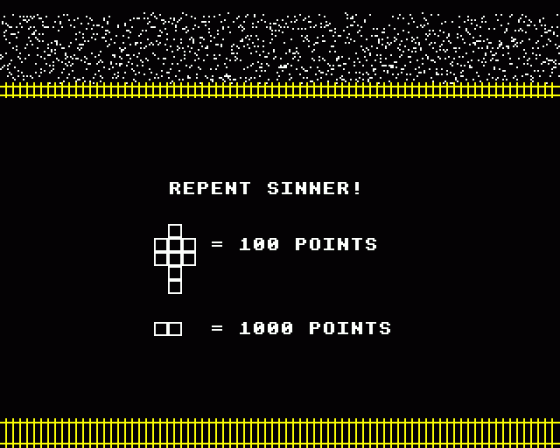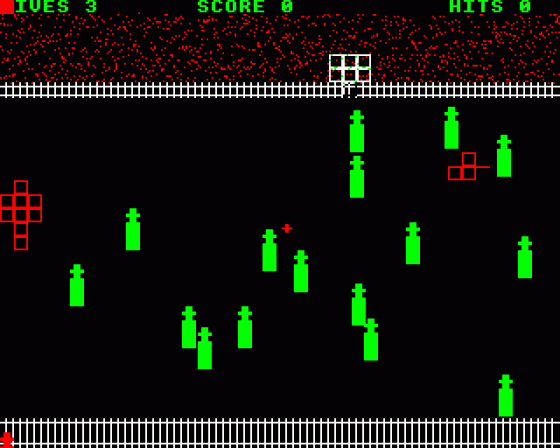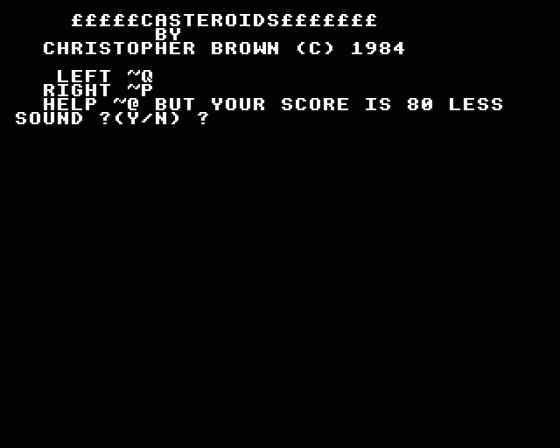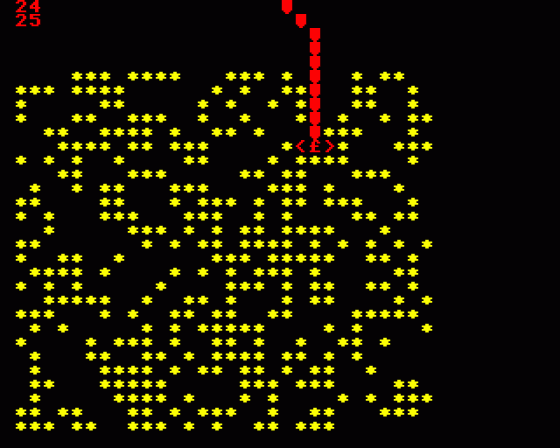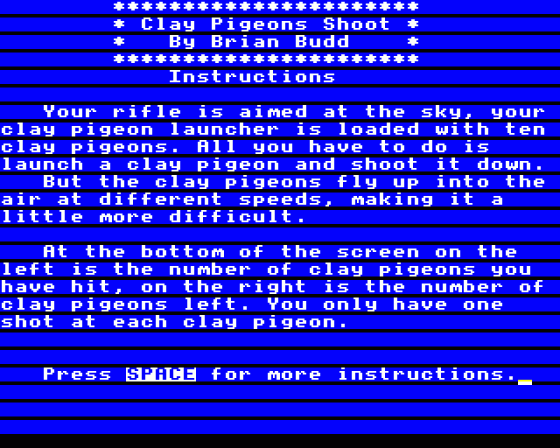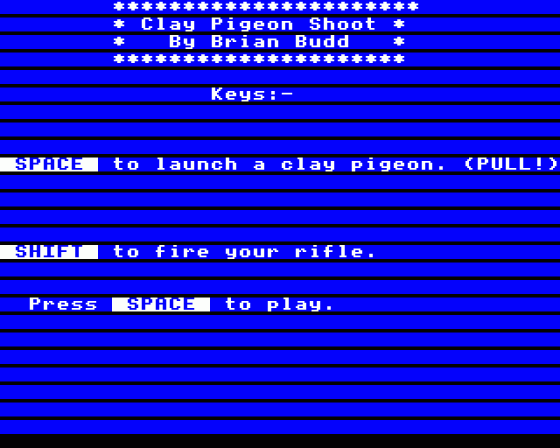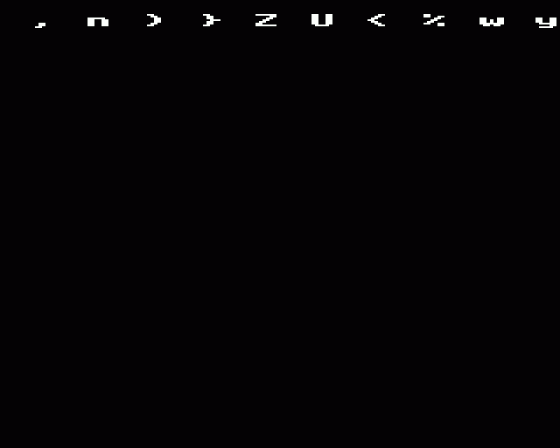
Everygamegoing
 31st December 2022
31st December 2022
Categories: Review: Software
Author: Dave E
Publisher: Acorn Programs
Machine: BBC/Electron
Acorn Programs #5
Back when I edited the Electron User Group magazine and, more specifically, in the early Noughties (when the Internet was new and exciting), I came across a library of scans of the Acorn Programs magazine. Acorn Programs was a short-lived high street magazine which featured, as you might have guessed, games and utilities for the Acorn machines. The first issue came out in December 1983 and, as far as we know, eight issues were produced in total, with the the last issue appearing in December 1984.
I don't remember the name of the website that I downloaded the scans from but I do remember that a basic html page introduced the series as "the very arse-end of Acorn-related printed matter" which gave me a chuckle. Believe me, there is a good reason why Acorn Programs is not remembered as fondly as Electron User or The Micro User magazines. Not only were the games (which were printed on a dot matrix printer, pasted into the magazine and left for the unwitting reader to type in) fantastically bad, the magazine itself was put together somewhat sloppily with a whole load of spelling and grammatical mistakes throughout its articles. It also had the vexing habit of leaving some of its programs on the cutting room floor, so that whether or not any program would actually work at all was by no means assured.
Anyway, about twenty years ago I was busying myself about typing in all the games from Acorn Programs (so that you guys didn't have to!), and reviewing each finished compilation in the pages of EUG when I was done. However, I only got as far as reviewing the first four issues. Recently, I was surveying the Acorn Programs library and, to my bemusement, I realised that - shock, horror - the companion disk for Acorn Programs #5 was actually unfinished. Somehow, back in those early Noughties, I must have become distracted after having typed in the first six programs from Volume 5, and never gone back to complete the others. Honestly, how could such a thing have happened?!
So, notwithstanding the fact that many people might well consider any "lost" Acorn Programs', um, programs, to actually be a good thing rather than a bad one, I have now completed this volume and all twenty games are available for the first time. It was quite interesting to go back to a project that I originally started over two decades ago, and it took me considerably less time now to transfer the type-ins to a real BBC Model B with the plethora of modern tools on a PC. Unfortunately, it doesn't make the programs themselves any better. They were crap in 1984 and they're crap now. But, no matter how niche a subject, you can guarantee that someone will be interested in seeing these games... so let's have a quick look at what you get here.
First up comes Address Book, a utility that simulates the old-fashioned paper notebooks in which we would record information about our friends and neighbours back before social media. As programs go, it's pretty pointless, and Acornsoft's professional version (in the Desk Diary suite) is, as you would expect, a far superior product.
Next up is Air Passage, which is a playable-but-dull, side-on flick-screen game in which you must manoeuvre a rocketship through a cave featuring stalagmites and stalactites. The skill is to move your rocket ship up or down in order to safely pass through the cavern, and playing it does require some skill. In fact, this game actually has some unrealised potential. If it just slowly speeded up as you played, I could imagine it becoming quite compulsive, as you could challenge yourself to get as far as you could before it became too fast to survive. Alas, it just continues at the same speed throughout, and so after a few screens of rocking and rolling on the controls, you've seen all it has to offer.
Cargorama is one of those 'skier' games that you may recall from the dawn of computing gaming itself. The screen scrolls downwards and you must simply move left and right to avoid the obstacles for as long as you can. Cargorama and another game, Doctor Who, vy for this compilation's Worst Game status, with Doctor Who also being a one screen-one challenge affair. In Doctor Who, you are placed somewhere on the screen and must find and enter your "tardis" (a sort of cupboard) whilst avoiding the patrolling "Dalek" (a mutant dustbin). If you collide with the tardis you win; if you are intercepted by the Dalek you lose and, either way, it's game over.
The text adventure Catacombs, which runs on the BBC only, is actually ok. It's a very simple NSEW adventure in the style of Scott Adams and to win you just need to collect the treasure scattered throughout the titular catacombs and return it to the main door. Certainly it's a lot more fun than Invisible Maze, which is a similar text adventure, but one with no descriptions at all. Finding your way through this is about as fun as watching paint dry.
Also included is Chicken Run which is a very odd, farmyard-based game in which you must "release the chickens from their eggs" only to immediately kill them again by dropping apples on them. I'm not sure whether there are some typos in the code but I couldn't get very far with this game - the premise itself is strange enough but you seem to release the chickens by running up to their eggs and pressing fire. So far, so good - except that the egg stays on-screen, the chicken appears directly in front of you and kicking the egg for a second time turns it into an apple! Yes, very weird indeed. If it wasn't so clunky to play, I might be tempted to explore it further, but it is, so I won't.
Finally we get a breath of fresh air in the form of Clay Pigeon Shoot, which I consider to be the best game on here. Firstly, because it takes some skill to play. And secondly, because it has some big multi-colour sprites and so visually appealing in a way that few of the others are. However, Acorn Programs didn't intend it to be the best of the bunch. In one of its more abject demonstrations of its own stupidity, Acorn Programs #5's Star Game was meant to be the next one, Ghost Hunter... a game set in a deserted graveyard in which you are under attack, Operation Wolf-style, from skeletons and ghouls. Aim your gun and send them back to the afterlife in a game of zap, pow and kersplat that'll easy justify the price of the magazine...
Unfortunately, the halfwits only printed half of it, forgetting to include the all-important sprite data. So, instead of being attacked by glorious multi-coloured skeletons and ghouls, you get to be attacked by... a load of empty CHR$ definitions. As if this oversight wasn't 'hilarious' enough (I suspect Mr. Paul Williams, who went to the trouble of sending it to Acorn Programs rather than one of its rivals would have been extremely disappointed to see it butchered in this way!), I combed through subsequent issues of the magazine to see if anyone had remarked upon the oversight only to find that they had... and Acorn Programs had responded with words to the effect of "Sorry about that, we're not sure how that happened and we'll let you know when we find out". Which, of course, they never did. So this game remains archived in a state of semi-completedness. Ay yi yi!
As I noted earlier, Acorn Programs' loved to display this sort of callous disregard for the reader's efforts. Not content with screwing up its Star Game, it also screws up Whist, which is also missing a key line. Again, scouring subsequent issues I found readers had also brought this oversight to the Editor's attention and, in an act so stupid you genuinely couldn't make it up, the response was a meandering introduction saying "Thank you for pointing out that Whist was broken. The line that was not included is:"... And the line was not printed... again! Ah yes, at first we wonder why this magazine only ran for eight issues. But if we read it, and play its games, all becomes clear.
So what else have we got? Well, there's Laser Attack, a sort of poor man's version of Space Invaders where you are attacked, very slowly, by a single nasty. There's Memory Keys, a concentration test in which you are shown ten characters (i.e. z H 3 % } ~ n 9 $ 3 D ) for a short period of time and then must type in as many of them as you can remember. There's Mix And Match, a multiple-choice "educational" game which draws shapes like triangles, squares, circles, etc and then asks you what shape you just saw. There's Monster Maths, which is a simple maths quiz and features no monsters at all. And there's Morse Code, which allows you to enter a message and then relays the Morse code it converts to by way of short and long beeps. None of these are really worth even loading up.
And, as for the rest of the games, well, by now you probably already know the score. Mad Castle (which is referred to as Gothic Horror in the magazine itself, for no reason) is clearly a cut above some of the others, in that it has some palette switching, animation, and something of a backstory. However, the game controls are finicky and it's so hard that I gave up pretty quickly. There's also a full-screen maze game called Tunnel Run in which you need to progress up the screen avoiding a minotaur. This also does take some skill, and time is tight invoking a sense of challenge, but there are some very odd inclusions like touching diamonds on the far right of the screen for no real reason. In Parachute Jump, you manoeuvre a boat underneath some falling parachutists... but it's all done with 8x8 CHR$ and is about as exciting as nosehair.
And finally (!) there's Space Landing, an Invaders-variant in which you actually play the invader rather than the usual bottom-of-screen laser base. You have to try and home-in on the laser base instead, and it's fun for a few minutes, although two successful captures with likely have you reaching for the BREAK key. And finally there's Tic-Tac-Toe for two players which is played with the TAB key (so BBC machines only!) and will cure anyone of insomnia.
And, yes, that's it. A compilation where the fun never starts. The only thing really to be said in its defence is that, when it came out, standards for BBC/Electron games weren't high. It arrived long before the games that defined the Beeb such as Repton, Revs, Elite and Exile... If you play these games (and, of course, you really shouldn't!) then you'll have a newfound appreciation for the true classics for the system. You'll be able to appreciate, for example, exactly why Repton was so revered when it arrived a few months later. You'll be able to place it in more of a historical context. Programs of the quality of Acorn Programs' were the norm for a year or two. After programmers began really "pushing" the hardware however, there was no going back. And so the compilation, finally archived after 40-odd years, does still have some merit, even though I can only award it a 1 out of 10.
Scores
BBC/Electron Version| Overall | 10% |

